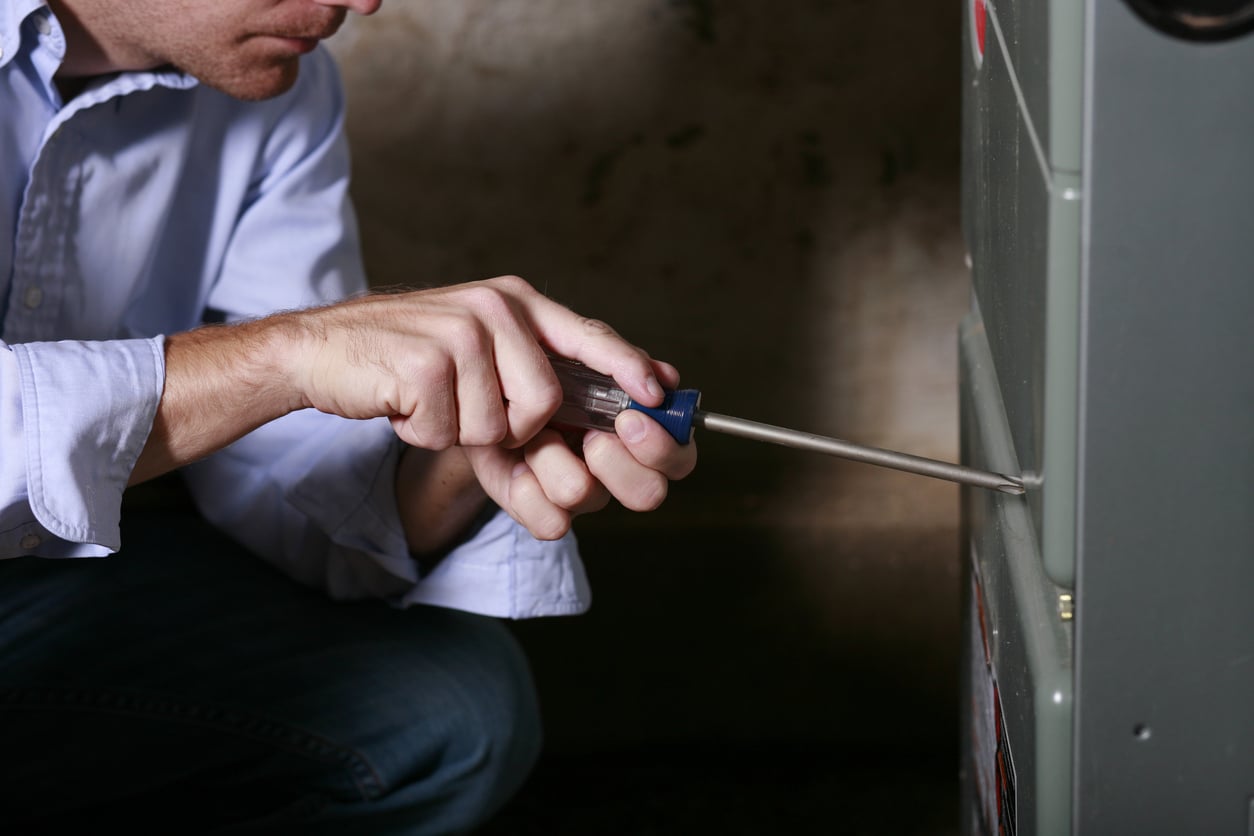
The idea of furnace leakage may sound like a contradiction, but a water heater can definitely leak. In certain circumstances, a central air conditioner may spill water too. But how and why would a gas-fired furnace deposit water somewhere inside your house?
It depends on the unit’s furnace efficiency rating. While standard-efficiency gas furnaces don’t produce water, a high-efficiency unit with an AFUE (Annual Fuel Utilization Efficiency) rating of 90% or more extracts extra heat by condensing water from exhaust gases. A residential high-efficiency furnace may extract 5 gallons of water or more daily, depending on hours of use. All that condensate has got to go somewhere, and if it doesn’t get funneled properly, furnace leakage results.
Here are some scenarios where furnace leakage may happen:
- Condensate first collects in an internal condensate collector box. Clogs forming here due to algae or other factors may cause an overflow at that point.
- The flow of condensate then runs through a flexible drain hose that slopes downward from the furnace. A leaking connection or a hole in the hose will result in water spillage around the furnace.
- The drain hose connects to the condensate trap. This is a safety component that prevents dangerous furnace-exhaust gases from potentially infiltrating the home’s living space. A leaky connection between the drain hose and the condensate trap, or a leak within the trap itself, may cause water leakage. (It’s important to have the trap inspected and cleaned regularly by a qualified HVAC technician to ensure safety and proper condensate flow.)
- The condensate drain pipe, which is typically made of rigid PVC, extends away from the condensate trap. Gravity may convey the condensate flow, or it may be pumped by a small electric motor. Leakage may occur at the pump connection or at pipe joints.
- In most cases, the drain pipe extends through an exterior wall, and condensate is released outdoors. In freezing weather, ice formation at the end of the pipe clogs the flow and triggers condensate overflow and/or automatically shuts down the furnace.
For more information about service to resolve furnace leakage, contact the professionals at Jackson & Sons.